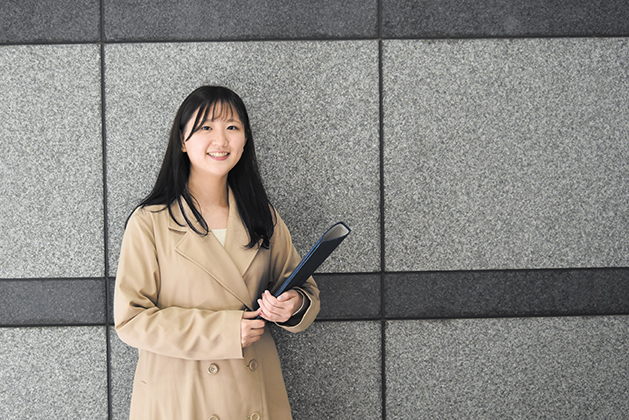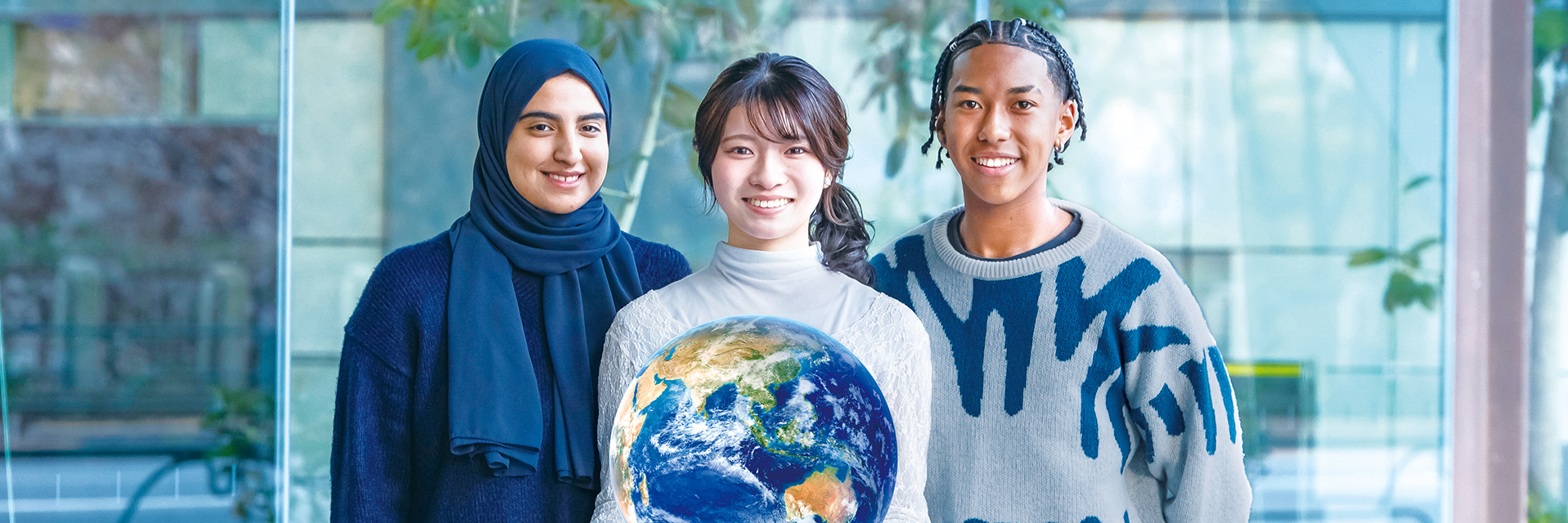
Our Mission
Taking the spirit encapsulated by the university motto jin (benevolence) as our basic principle, Juntendo University’s Faculty of International Liberal Arts provides education aimed at cultivating global citizens with the desire to contribute to improving
sustainability, multicultural societies, and human welfare by gaining the foreign language skills required in the international community, along with a wide-ranging, well-rounded general education in culture, history, economics, and natural science, and
a grounding in global societies, intercultural communication, and global health services.
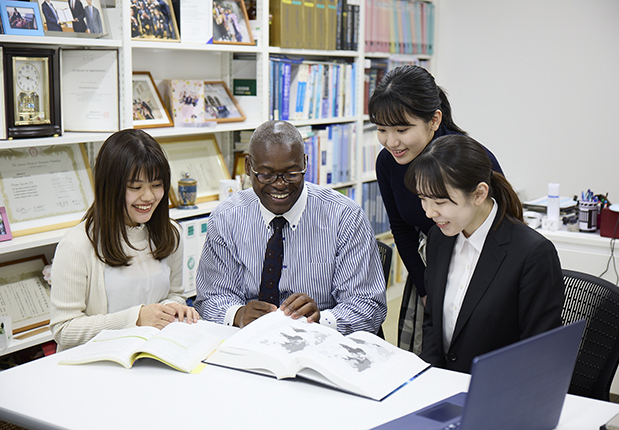
The educational objective of the Faculty of International Liberal Arts is to cultivate global citizenship so as to enable students to contribute to the creation of a sustainable future. Securing diversity is essential to ensuring that humanity’s future
is sustainable, so global citizens capable of helping to build multicultural, multilingual societies will be required.
This faculty requires well-motivated students who understand our educational philosophy and are equipped with the qualities required to become global citizens who will contribute to a multicultural society.
This faculty requires well-motivated students who understand our educational philosophy and are equipped with the qualities required to become global citizens who will contribute to a multicultural society.
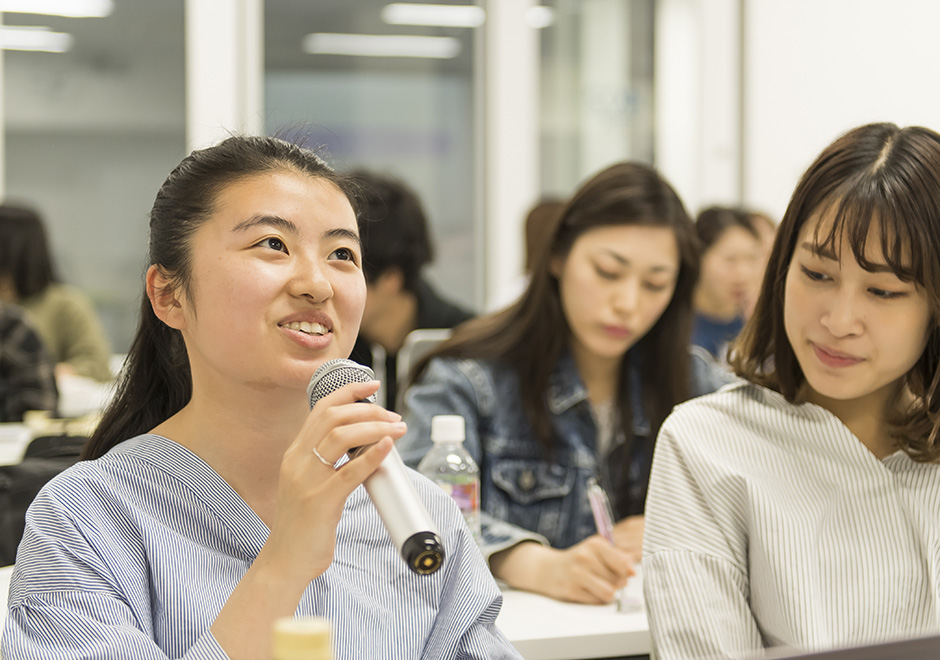
What Kind of Students Are We Seeking?
- People who are interested in the true state of our globalized world, its challenges and background, and diverse cultures and people, and who dream of trying to contribute to a sustainable future for humanity.
- People who aim to contribute to a multicultural society as global citizens and who want to continue learning independently for the rest of their lives.
- People who wish to understand and interact with people from other countries by communicating in other languages, based on their own identity and native language skills.
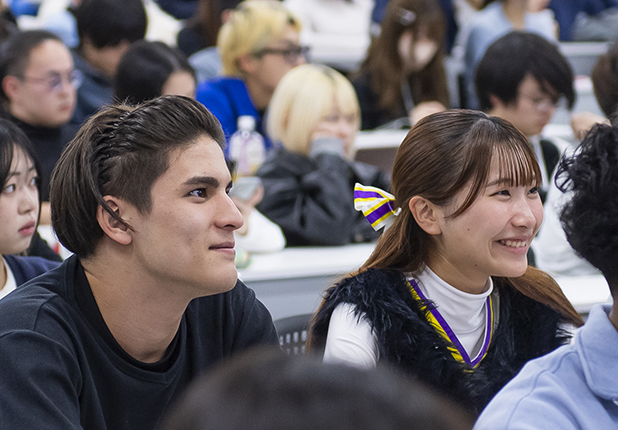
Subjects to Study Prior to Enrollment
The Faculty of International Liberal Arts would like prospective students to study the following subjects and disciplines at high school, etc. before enrolling in university.
- English and Japanese language: Communication skills, basic reading comprehension skills, ability to express oneself, and thinking skills, which are required to enable you to play an active role in the international community.
- Social studies: A basic knowledge of the geography, history, or civics required for an interest in and understanding of the international community.
- Science and mathematics: A basic knowledge of the natural sciences required to understand biological phenomena, health care and medical care, including biology, chemistry, and mathematics.
- Initiative, independence, and a positive attitude cultivated through extracurricular activities, volunteer activities, and overseas experience, among others.
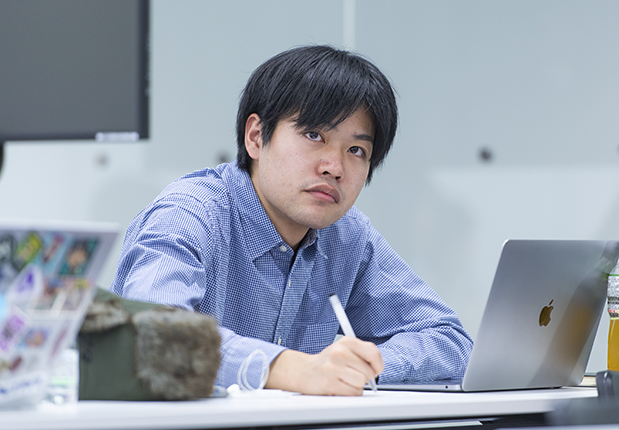
Basic Admissions Policy
Our faculty makes an active effort to accept students with diverse backgrounds by combining multiple methods for selecting university entrants. When deciding which candidates to accept for admission, we make a decision that takes a comprehensive range
of factors into consideration in our assessment, including not only academic performance and activities at high school and the like, but also volunteer and other activities. The international liberal arts education provided by the Faculty of International
Liberal Arts over four years is an academic program that cultivates global citizens, based on the university motto Jin, its guiding principle of Fudanzenshin(continuously moving forward), and the school culture of Sanmushugi,
which means that we do not discriminate against people on the grounds of gender, nationality, or academic background.
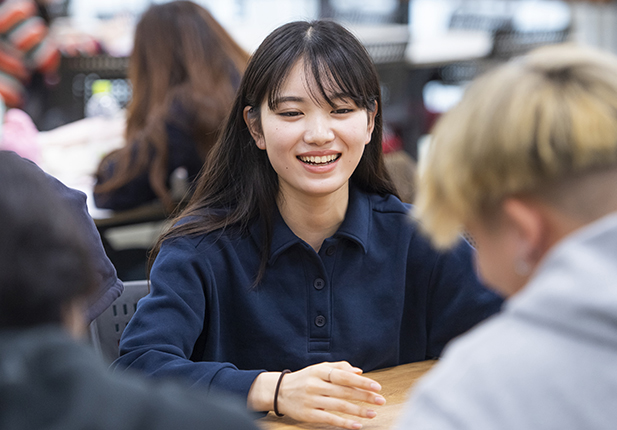
Curriculum
Introduction Period
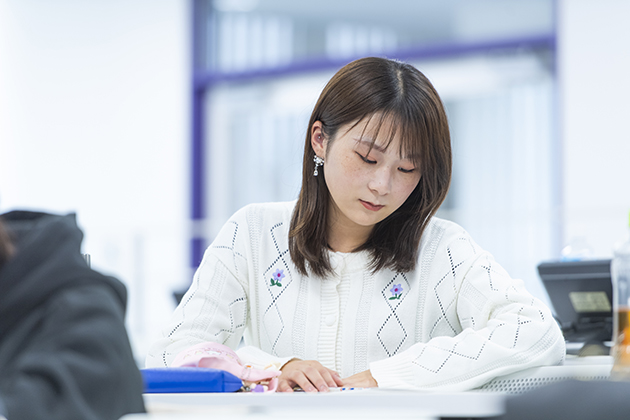
1
Cultivating communication skills through foundation courses
You will gain experience of presentations in the first semester and facilitation in the second, thereby laying the foundations of the communication skills essential for global citizens.
You will gain experience of presentations in the first semester and facilitation in the second, thereby laying the foundations of the communication skills essential for global citizens.
2
Basic subjects that foster liberal arts with an international reach
Regardless of whether you intend to specialize in the humanities or science, you will take basic subjects including foreign languages and a wide-ranging general curriculum incorporating fields relevant to health and medical care, which will cultivate a broad and deep general education, richness of spirit, and an ethical perspective.
Regardless of whether you intend to specialize in the humanities or science, you will take basic subjects including foreign languages and a wide-ranging general curriculum incorporating fields relevant to health and medical care, which will cultivate a broad and deep general education, richness of spirit, and an ethical perspective.
3
First- and second-year foreign language education based on plurilingualism and the languaculture approach
To enable you to become proficient in the foreign language communication skills that you will require as a global citizen, based on the principle of plurilingualism, you will take classes in not only international English, but also one other foreign language, choosing from French, Spanish, and Chinese. These classes will introduce the languaculture approach, which will give you the opportunity to study and gain first-hand experience of intercultural communication. We will measure improvements in your performance using TOEFL and other international standard tests for measuring language skills.
To enable you to become proficient in the foreign language communication skills that you will require as a global citizen, based on the principle of plurilingualism, you will take classes in not only international English, but also one other foreign language, choosing from French, Spanish, and Chinese. These classes will introduce the languaculture approach, which will give you the opportunity to study and gain first-hand experience of intercultural communication. We will measure improvements in your performance using TOEFL and other international standard tests for measuring language skills.
4
Introduction to three realms
In the first year, you will take Introduction to International Liberal Arts: Becoming a Global Citizen, in which you will learn about the three realms of Global Society, Intercultural Communication, and Global Health Service and their relationship to each other.
In the first year, you will take Introduction to International Liberal Arts: Becoming a Global Citizen, in which you will learn about the three realms of Global Society, Intercultural Communication, and Global Health Service and their relationship to each other.
Formation Period
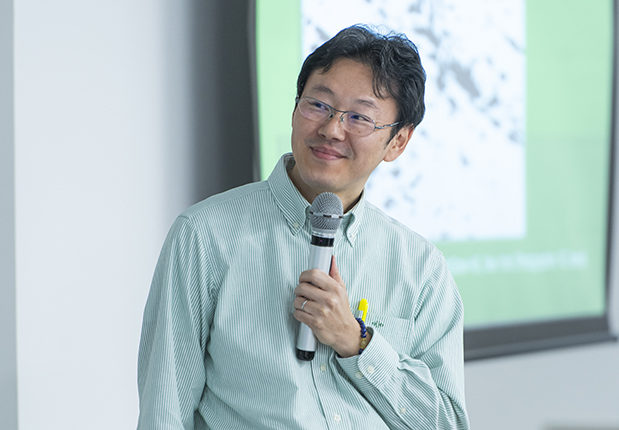
5
Advanced courses in the three realms
In the second year, when the formation period begins, you will take compulsory introductory courses in each realm and also choose a specific realm according to your interests. Advanced courses featuring subjects relating to the three realms form part of the curriculum from the third year. In the Global Society realm, you will learn about the problems of globalization with a view to creating a sustainable future. Global Health Service realm courses will teach you about issues concerning the body, health, and life in Japan and around the world, while in the Intercultural Communication realm, you will gain a profound understanding of the issues inherent in and represented by communication with different cultures, as well as learning ways of contributing to the construction of multicultural/ multilingual societies.
In the second year, when the formation period begins, you will take compulsory introductory courses in each realm and also choose a specific realm according to your interests. Advanced courses featuring subjects relating to the three realms form part of the curriculum from the third year. In the Global Society realm, you will learn about the problems of globalization with a view to creating a sustainable future. Global Health Service realm courses will teach you about issues concerning the body, health, and life in Japan and around the world, while in the Intercultural Communication realm, you will gain a profound understanding of the issues inherent in and represented by communication with different cultures, as well as learning ways of contributing to the construction of multicultural/ multilingual societies.
6
Specialist foreign language education and overseas study/training
We have put in place a range of English for Specific Purposes courses that enable you to study English independently with a view to your future career path and also offer advanced electives in French, Spanish, and Chinese. Paths to overseas study are available and we have put in place an overseas training program outside the normal curriculum.
We have put in place a range of English for Specific Purposes courses that enable you to study English independently with a view to your future career path and also offer advanced electives in French, Spanish, and Chinese. Paths to overseas study are available and we have put in place an overseas training program outside the normal curriculum.
Completion Period
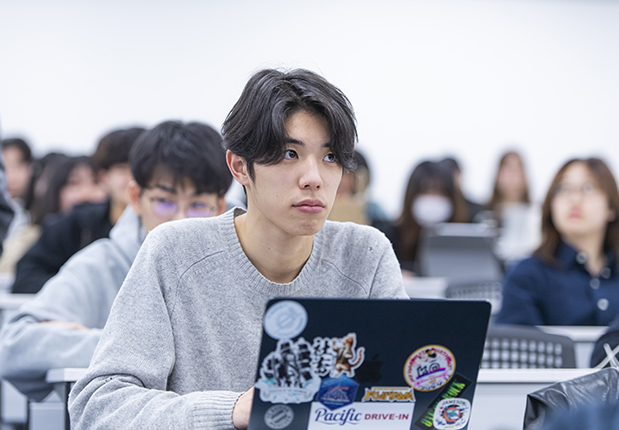
7
Cultivation of multifaceted thinking across the three realms
The curriculum is arranged so that you will gain knowledge that will facilitate multifaceted thinking by studying class subjects in the other two realms, in addition to the one realm that you have chosen, so that your education cuts across all three realms.
The curriculum is arranged so that you will gain knowledge that will facilitate multifaceted thinking by studying class subjects in the other two realms, in addition to the one realm that you have chosen, so that your education cuts across all three realms.
8
Strengthening of specialist abilities through practical subjects
In Practical Learning for Global Citizenship during your third and fourth years, you will conduct research concerning issues related to your chosen realm of study.
In Practical Learning for Global Citizenship during your third and fourth years, you will conduct research concerning issues related to your chosen realm of study.
9
Preparation of a graduation thesis
You will prepare a graduation thesis that incorporates learning from your chosen realm and also, in some cases, from the other realms.
You will prepare a graduation thesis that incorporates learning from your chosen realm and also, in some cases, from the other realms.
Two-Pronged Approach to Career Development
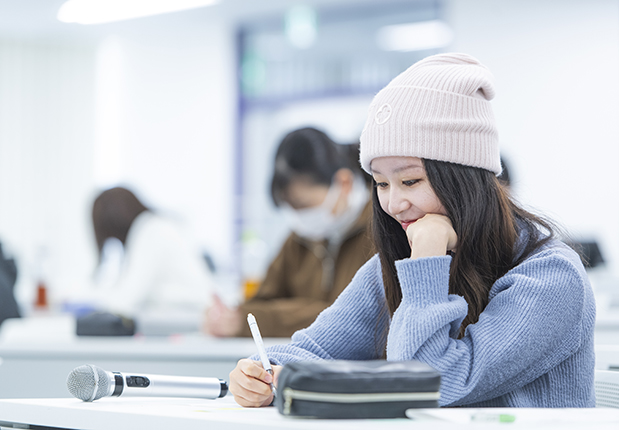
10
Award of credits for careers education
To encourage students’ social and economic independence, we also place a great emphasis on enhanced careers education from the first year, immediately after enrollment, and have included careers education as part of the curriculum, enabling you to earn credits for these classes as regular subjects.
To encourage students’ social and economic independence, we also place a great emphasis on enhanced careers education from the first year, immediately after enrollment, and have included careers education as part of the curriculum, enabling you to earn credits for these classes as regular subjects.
11
Teacher training program offering the chance to gain a teacher’s license (English language)
If you earn the requisite number of credits by taking the designated courses, you can obtain the teacher’s license required to become an English language teacher at junior and senior high schools.
If you earn the requisite number of credits by taking the designated courses, you can obtain the teacher’s license required to become an English language teacher at junior and senior high schools.
Learning Method
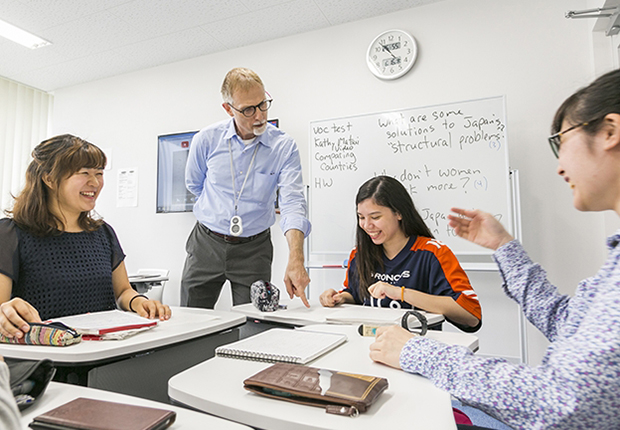
12
Use of active learning to encourage initiative
Using small classes and cooperative learning as learning methods, this faculty practices active learning in which students engage independently.
Using small classes and cooperative learning as learning methods, this faculty practices active learning in which students engage independently.
Evaluation of Academic Achievements
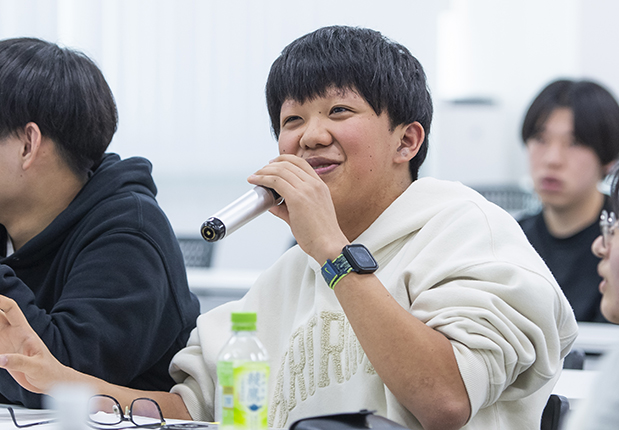
13
Comprehensive evaluation of academic achievements
Your academic achievements will be evaluated comprehensively by means both of objective assessment based on performance in the courses that you have taken and subjective assessment in which you periodically evaluate your own performance based on competency clusters. We will use the results of evaluation to improve our education methods.
Your academic achievements will be evaluated comprehensively by means both of objective assessment based on performance in the courses that you have taken and subjective assessment in which you periodically evaluate your own performance based on competency clusters. We will use the results of evaluation to improve our education methods.
Voices
Chitose, Graduate
Pursuing My Dream on the Global Health StageI enrolled in the Faculty of International Liberal Arts with the goal of becoming a global health promoter who can support the health of people worldwide. Just as doctors and nurses treat illnesses, it is equally important to understand their causes and to share the value of managing health with others. To achieve this, we need to work across languages and cultures, cooperating with people of different perspectives. Faculty of International Liberal Arts provided me with the learning opportunities I needed to build that foundation.
Inspiring Mentorship That Turned a Dream into a Goal
What appealed to me most was being able to learn directly from professors like Professor Niyonsaba and Professor Yuasa, who are actively engaged in global health. Their guidance and encouragement helped transform what once felt like an abstract dream—working as a global health promoter—into a concrete and achievable career path.
Population Aging is Advancing Rapidly Across the Globe
To prepare for this challenge, I pursued a Master's in Public Health at Chulalongkorn University in Thailand, deepening my expertise in aging policy. After graduating, I undertook an internship at an international organization. I am now striving to achieve my goal of serving in an international organization through the Ministry of Foreign Affairs’ Junior Professional Officer (JPO) dispatch system.
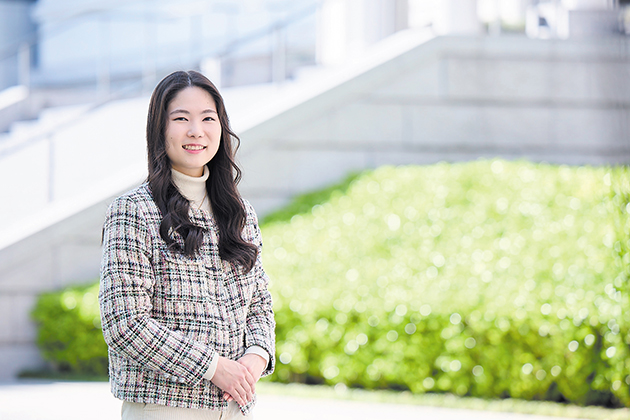
Zahura, Graduate
Choosing Global Health as the Path Toward My GoalI chose this faculty because I wanted to study under Professor Niyonsaba in the “Seminar on Infection Defense and Immunity.” Having attended one of his lectures in high school, I was deeply inspired by the field of global health. In the future, I hope to work at an international organization and contribute to supporting developing countries. I believe that my studies in the Faculty of International Liberal Arts have been the ideal stepping stone toward realizing this dream.
Broadening My Knowledge and Perspective
As a student in the Faculty of International Liberal Arts, I dedicated myself to courses that nurtured cross-cultural understanding and intercultural communication skills, offering a wide range of learning opportunities and encounters. In my first year, the course “Introduction to International Liberal Arts” broadened my knowledge through lectures on diverse themes. In my second year, “English for Global Citizenship I & II” not only improved my English proficiency but also expanded my global perspective through debates on international issues.
Friendships and Support that Last Beyond Graduation
One of the most memorable experiences for me was supporting international students during the international exchange
fieldwork. Through sharing different cultures with mutual respect, I was able to feel as though I were studying abroad while remaining in Japan. The interactions extended not only with the international students but also with my group members, making it a meaningful experience where I gained new friends and lasting connections.
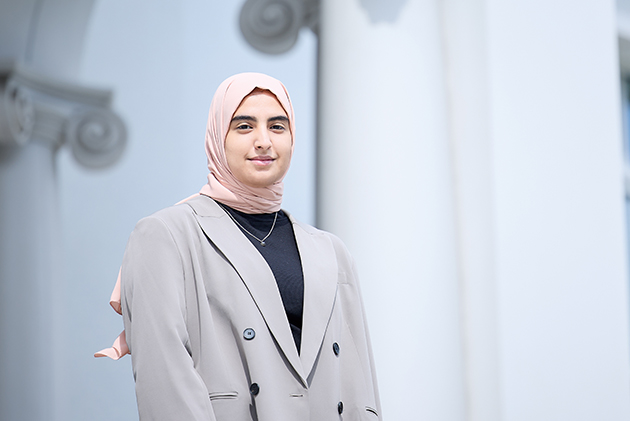
Akira, Student
Learning the Value of Different PerspectivesOne of the most memorable experiences for me was in the Cultural and Psychological Communication Seminar. We freely discussed topics of interest, and I gained many insights by engaging with the different perspectives of my peers. In courses IIE and EGC, I also realized differences in how language and culture are perceived through interactions with international faculty. I learned that cultural differences exist not only between countries but also among Japanese people themselves, and I recognized the importance of maintaining an open attitude toward such differences. I hope to apply these lessons in future connections with people and in intercultural exchange settings.
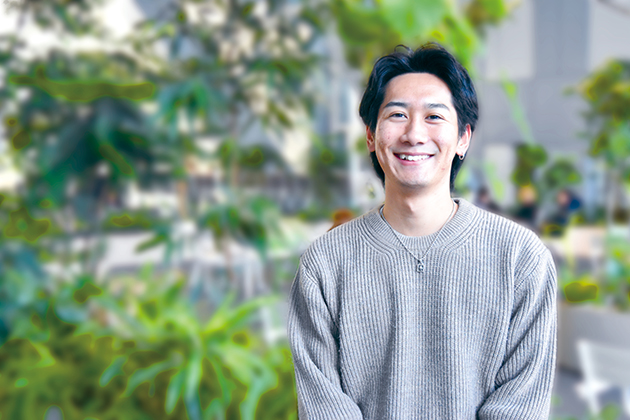
Ayamo, Graduate
The Value of Expressing Yourself ClearlyWhat began as a simple desire—“I want to communicate in English”—has become an invaluable asset. Among my experiences, the most memorable was in Professor Okabe’s seminar, where I interacted with students from other universities and gave presentations. I realized that simply speaking without preparation is very different from conveying a message effectively within a set time. Through this, I honed various presentation skills, such as clearly stating the conclusion first to capture the audience’s attention. This experience gave me great confidence and continues to benefit me in many situations today.
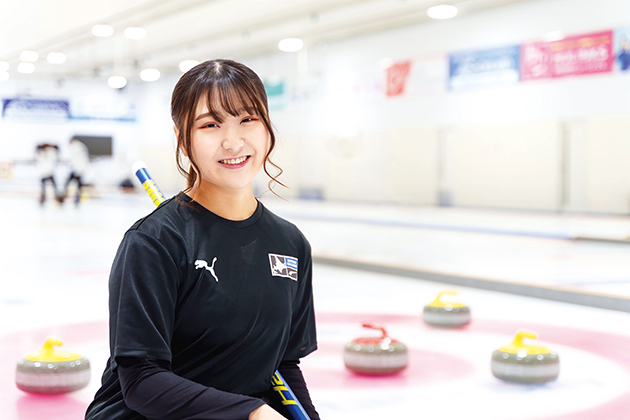
Mari, Graduate
Embracing Differences to Foster UnderstandingWhile studying the foundations of world affairs and politics in depth, I came to realize through numerous discussions and guest lectures that there are many different ways of looking at things. I learned the importance of accepting others with different opinions and making the effort to find common ground—an attitude that helps build relationships with people of different nationalities, ages, and genders. It is thanks to this field of study that I was able to develop this mindset. Going forward, I hope to become someone who can continue to build strong relationships by respecting the perspectives of everyone I interact with—friends, family, supervisors, clients, and beyond.
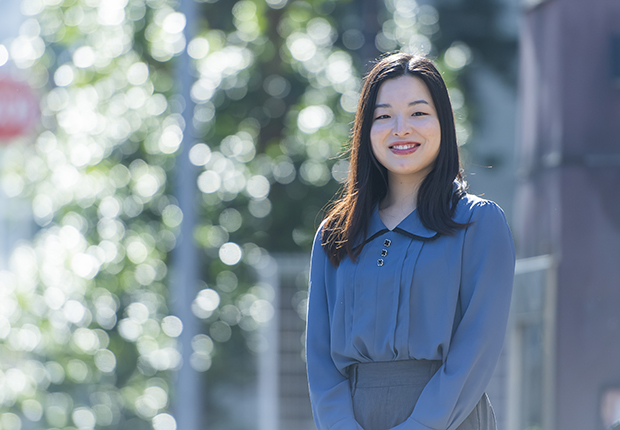
Chihiro, Graduate
Promoting Understanding and Building Common GroundWhat I learned in the field of Global Society became a major step in helping me view “working” more positively at a time when I felt anxious about job hunting. In particular, the course Global Human Resource Studies gave me insight into how individuals who work across regions are evaluated and how they grow as “global professionals.” This also motivated me to pursue a national certification as part of my career development. In the future, if I have the opportunity to work as a global professional, I hope to take the initiative in promoting intercultural understanding within my workplace and demonstrate leadership in building consensus.
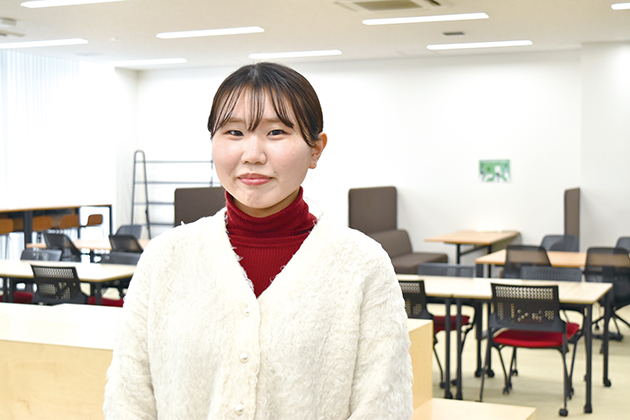
Yumiho, Student
From Lifestyle to Policy: Rethinking Health PromotionThrough my studies in the field of Global Health Services, I learned that health is influenced not only by daily lifestyle habits but also by environmental, cultural, and social factors. One course that left a strong impression on me was “Characteristics and Challenges of
a Sustainable Aging Society.” By examining the current realities of a low-birthrate, aging society, we discussed issues and potential solutions related to health and medical services. This experience heightened my interest in developing systems and educational initiatives that promote health. I hope to apply this knowledge and experience in a career that contributes to the advancement of health promotion.
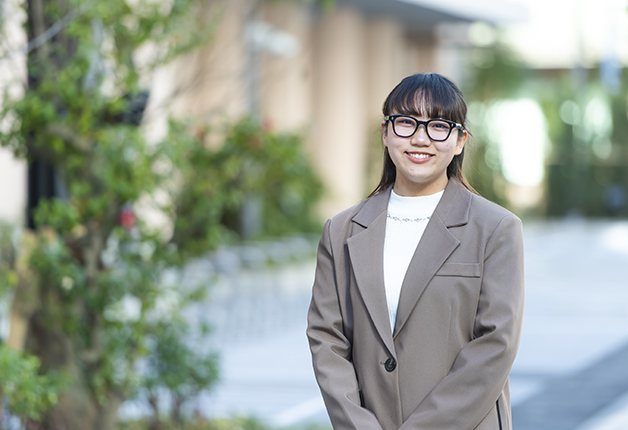
Karin, Graduate
Working Toward Fair Access to HealthcareThrough my studies in the field of Global Health Services, I came to realize that behind health issues lie various social and cultural contexts, and that for some people, even reaching the starting point of protecting their own health can be difficult. Building on this awareness, after graduation I pursued research at a graduate school of medicine on access to health care for the vulnerable and minorities. Going forward, I hope to continue engaging with the “vulnerabilities” faced by people in different positions, while contributing to the accumulation of academic knowledge and raising new questions for further exploration.
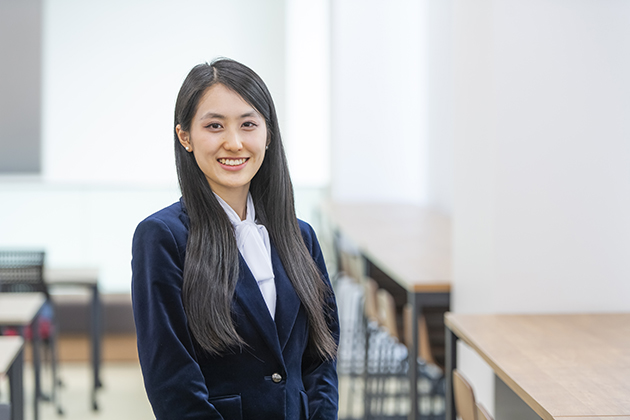
Miyu, Graduate
Fulfilling Days of Learning in a Field I AdmireSince my high school days, I have been interested in the field of global health, and from the very beginning I was able to join Assocaite Professor Naoko Ohno’s health communication seminar. This has allowed me to spend very fulfilling days. I also gain many rewarding experiences, such as hospitality training, which is a valuable opportunity not offered at other universities.
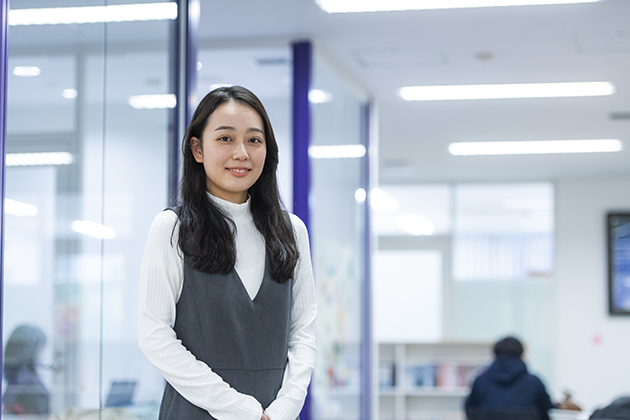
Kento, Student
Studying with the Purpose to Promote HealthIn the future, I want to become someone who can contribute to people’s health, so I devote myself to studying every day. I also take the initiative to go beyond the standard curriculum, such as receiving lectures from my professor on statistical analysis. For someone like me who wanted to study global health, this is exactly the kind of environment I had hoped for!
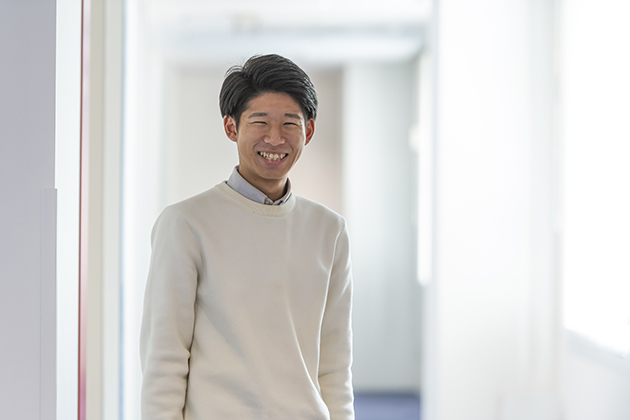
Rei, Student
Balancing Studies, Work, and New OpportunitiesMy style of university life is balancing both studies and part-time work without compromise. I make use of spare moments and breaks during my part-time job to focus on assignments, finding ways to manage a busy schedule effectively. By interacting with many different people, my world has expanded, and every day feels fulfilling.
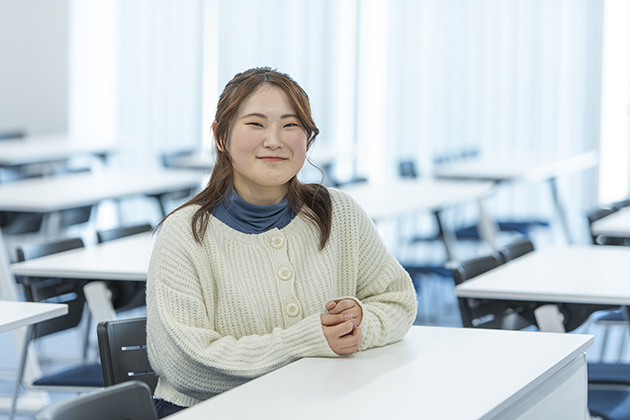
Mayuko, Student
Broadening My Horizons Through Study in AustraliaI am currently studying abroad for one year at Griffith University in Australia. At the Nathan Campus, located in the middle of a vast forest, I am studying public health. By conversing in English not only with people in the same field as myself but also with those from diverse backgrounds and perspectives, I hope to broaden my horizons as a person and absorb as much as I can.
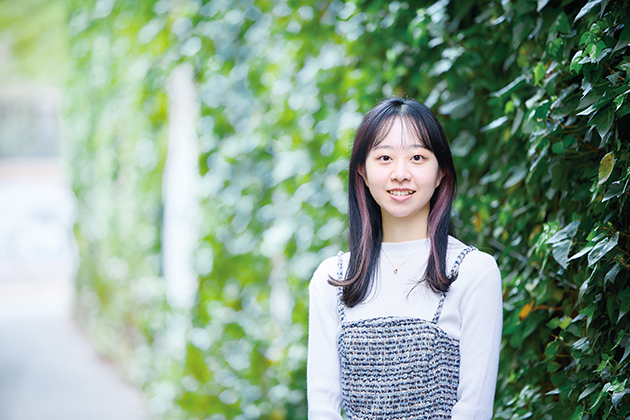
Ayaka, Graduate
Life and Learning on a Large American CampusI studied abroad at the University of California, Irvine. Having graduated from a high school in Canada, I wanted to study public health in English. The campus at an American university is incredibly large—it took ten minutes just to walk from one classroom to another. Rushing at full speed to make it to class is now a fond memory. In the future, I hope to use English as a strength and pursue a career in public health overseas.
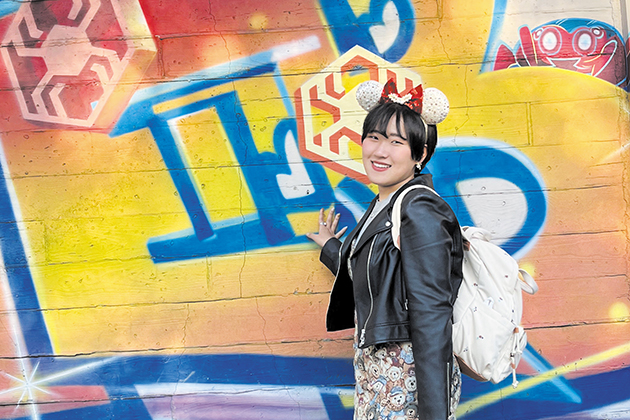
Jun, Graduate
Eye-Opening Experiences in TaiwanI studied Chinese at the Mandarin Training Center (MTC) of National Taiwan Normal University. The students came from a wide range of nationalities and ages, and it was very stimulating to meet classmates from countries I had never even heard of before. With my Italian friend, for example, we would converse by mixing English and Chinese, which really made me realize both the challenges and the importance of communication.
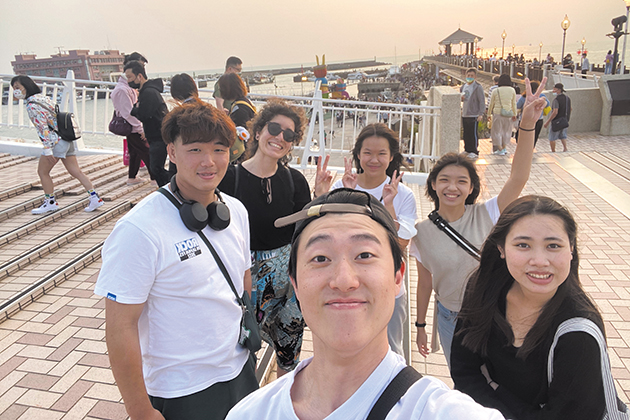
Mutsumi, Student
The Warmth of the Philippines that I Will Never ForgetI studied for one month at a language school in the Philippines (CPILS). What stands out in my memory is being able to connect through conversation with people from many different countries during classes, breaks, and after school. I once again realized how much learning English broadens one’s world. Building on this experience, I want to focus on studying in a way that allows me to actually use English, while also learning from the perspectives of many people and growing into a more well-rounded person.
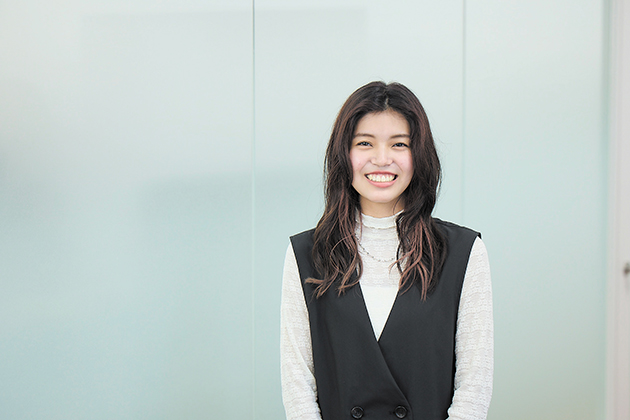
Yusuke, Student
Overcoming Challenges to Find My Voice in EnglishEncouraged by my English teacher, I took on the challenge of a study abroad program and spent one month at a language school in the Philippines (CPILS). At first, I was filled with anxiety during the one-on-one lessons because communication didn’t go smoothly, but by continuing to persevere, I was eventually able to communicate. Going forward, I want to acquire more practical English skills and learn about the cultures of many different countries.
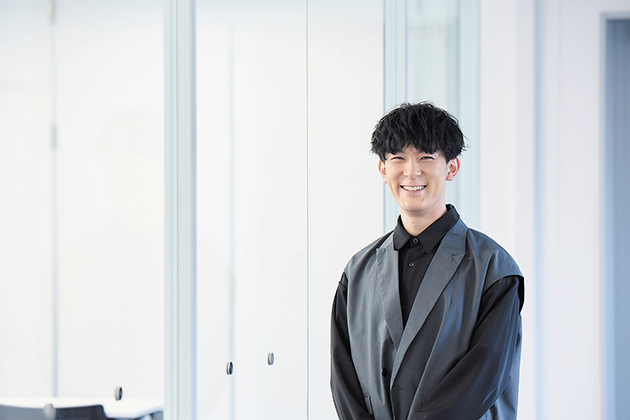
Marin, Graduate
Building Trust and Supporting Students with CareI was truly supported by the generous guidance of my instructors. The careful consideration given to assignments and the willingness to listen closely to our concerns are, I believe, unique to this faculty. What I want to value most is continuing to be a teacher who can say “no” when necessary in order to build stronger relationships of trust with students. By always listening attentively to their voices and speaking with sincerity, I hope to make this unshakable principle my foundation and become a teacher who embodies the spirit of this faculty while standing alongside minorities.
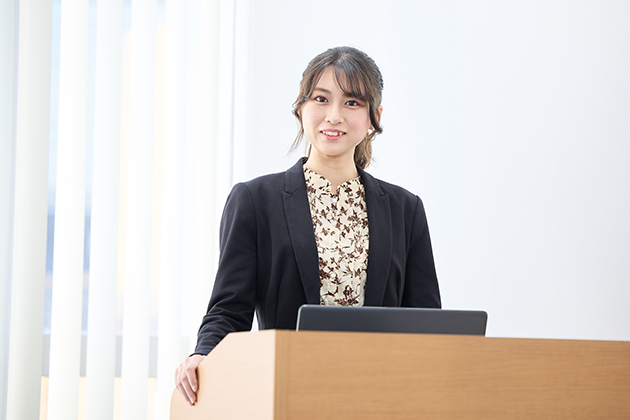
Miyuki, Graduate
Gaining Insight into Education from the Teacher’s SideIn the Teacher Training Program, I was able to learn about the structure of schools and lessons from the teacher’s perspective—something I had only understood from the student’s viewpoint until then. Through this, I realized that the teaching profession, which I had previously aspired to rather vaguely, is actually a role of immense responsibility that can shape students’ futures. The unique appeal of the program lies in having peers who strive toward the same goal and being able to learn directly from instructors with real experience teaching in junior high and high schools. The content we study here also directly connects to the teacher certification exams, making this a truly practical training program that leads directly to one’s future career.
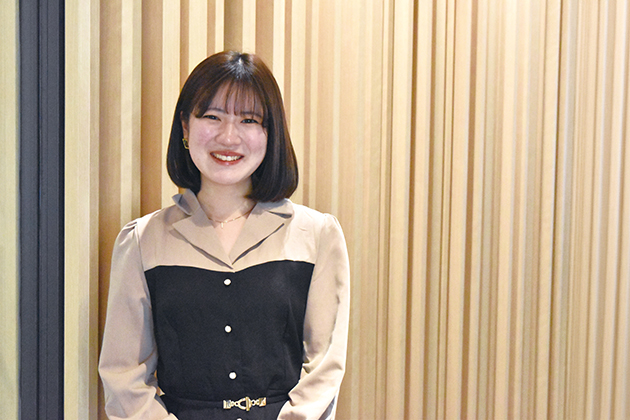
Yiwei, Graduate, Currently Public Health Course, Graduate School of Medicine, Juntendo University
Gaining Practical Skills for the Future Workplace
The learning opportunities at this university are diverse, but what I find most valuable is being able to gain an early understanding of manners and behaviors that are essential in the professional world. One particularly memorable experience was in a health communication class, where we role-played as doctors, patients, and interpreters in medical settings. Being able to experience situations that actually occur in the field while still a student has become an invaluable asset for my future career.
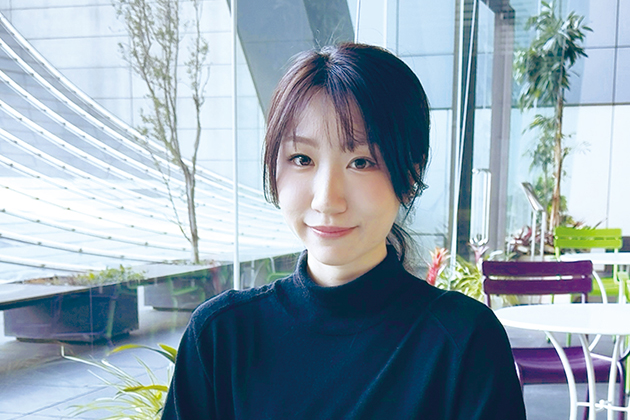
Seira, Graduate
A Global Perspective that Became My Strength in Job HuntingDuring job hunting, when I spoke to company representatives about the “international approach” and the knowledge and experiences related to “health” that I had gained at university, they showed particular interest. In fact, one interviewer even praised me, saying that I had a “high perspective,” which made me realize how much the global outlook I developed at university is serving me well.
